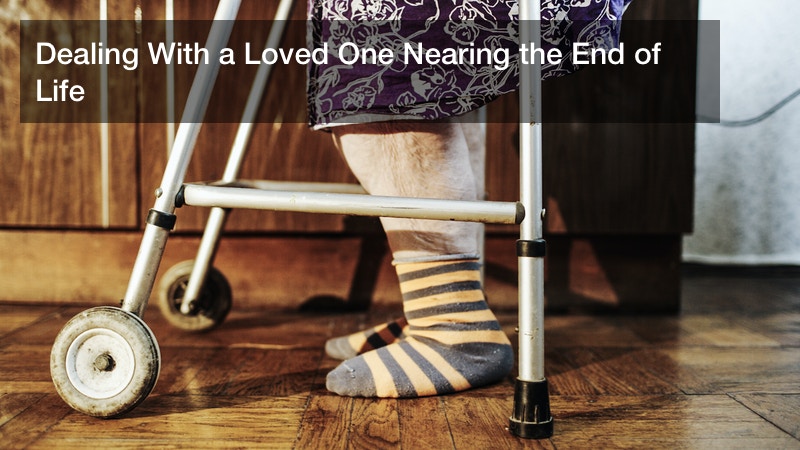
Hospice care has become an acceptable method of dealing with medical patients who are terminally ill. Hospice care in the United States began to appear in the 1970s, in following similar services that had been adopted in Great Britain. More than a million Americans of all ages utilize hospice care every year.
The emphasis in hospice care is on providing comfort to patients who are in the final days of their lives while, at the same time, providing support to families. In addition to serving the emotional state of those involved, hospice care may include spiritual or religious guidance.
Home health hospice and palliative care is an important part of the system. However, hospice facilities contained within hospitals or operated by hospice care companies are available to provide inpatient services. Such facilities are staffed by professional medical personnel, including doctors and nurses.
Hospice care is not designed to in any way hasten the death of patients. Instead, it tries to make the final days of lives as satisfying as possible. If you have a loved one facing a terminal condition, you should consider such services, perhaps even seeking hospice care in your own home.
It’s hard to know how to handle the loss of a loved one. But as medical technology and healthcare services get more advanced, death is less likely to happen suddenly than it is to be drawn out over time. Suddenly you aren’t just grieving when a loved one passes — in some way or another, you may be facing grief every day for weeks or months.
Besides being hard on you, it’s also hard on anyone else in the family, including children. Between your own feelings and caring for your loved one, you may not know how to manage everybody else.
But as stressed out as you and your family may feel as you figure out how to handle the loss of a loved one, it’s not easy for the one dying, either. They may sense that their condition is causing distress and tension for the family, and depending on their disposition, they may feel like a burden, or be uncomfortable being the center of attention. They may even fail to ask for help, such as with estate planning, when they need it, out of fear that they’re being a bother.
Whether you’re caught directly in the middle of everything as your loved one’s primary caretaker, or you’re more on the sidelines, this article will help you understand how to handle the loss of a loved one, and make sure everyone’s needs are met.
Coping With Anticipatory Grief
Traditional grief is what you experience after somebody close to you dies. Funeral directors are accustomed to seeing this kind of grief during and after memorial services. However, anticipatory grief is what you experience when you know someone is likely or going to die, and you have no choice but to wait for the end. People who feel like they know how to handle the loss of a loved one are probably thinking of conventional grief, which despite being incredibly difficult, is at least fairly straightforward. At a certain point, you can move on, knowing there’s nothing you can do. With anticipatory grief, not only are you saddened by the thought of losing your loved one, but you could also be dealing with intense stress from dealing with family members and the needs of your loved one.
Knowing how to cope with anticipatory grief is important to taking care of yourself during such difficult times. To learn how to handle the loss of a loved one before they’ve died, keep reading.
Understanding Anticipatory Grief
Anticipatory grief is the deep sense of sadness that people usually feel in the last days of life. It affects both the loved ones of the one nearing death, as well as by the person dying. Depending on your loved one’s medical condition, this period of grief can start long before you need to call the funeral home. Having this time of grief before death gives people the valuable opportunity to say their goodbyes, but it doesn’t replace or shorten the time of grieving that follows death.

Allow Yourself to Grieve
Many people feel guilty about experiencing grief while their loved one is still alive. Accepting the loss of a loved one before they’ve died can seem like giving up on them, or at least like letting go before it’s time. But it’s important to let yourself grieve as you need to, or you’ll risk becoming frustrated and lashing out at those around you. It’s perfectly acceptable to feel sad now because you know your loved one is dying, and lying to yourself or trying to avoid the feelings will only cause you to be distanced from those closest to you, who are most likely feeling the same way.
Whether it happens before or after the burial services, grief serves a purpose. It won’t force you to give up on your loved one or forget about them. You can still be supportive of your loved one during this time, and in fact, you can be even more supportive because you’ll be honest with yourself about your feelings.
Find a Safe Way to Express Your Pain
Allowing yourself to feel the pain of grief is only half of the challenge. It’s also important to express that grief externally, so it doesn’t become built-up or overwhelming inside. No one should have to face anticipatory grief alone.

If you can, find a friend you can trust not to judge you for your feelings, who is comfortable letting others be themselves around them. You need someone willing to listen to you without feeling the need to try and “fix things.” There’s no right or wrong way to feel when facing the death of a loved one, and someone who hasn’t been through it cannot truly comprehend how it feels. Try to find a friend who would understand this.
If you’re expressing your feelings to a trusted friend and they begin trying to give advice or instruction, gently interrupt them and say that you only want someone to listen, not to fix things. You have a family lawyer for solutions; you need friends for listening. There’s no easy fix for the emotions you’re facing, and besides, by letting the words out you’ll be better equipped to find your own solutions.
Consider Taking Up Journaling
Maybe you don’t have many friends, or you just don’t feel comfortable exposing your feelings to anyone. Writing down your thoughts feelings can be a decent substitute for sharing them with someone else, and even if you have friends supporting you, many people find that keeping a journal is very healing.

Journaling can be cathartic, as it allows you to express and articulate feelings that you might not be comfortable sharing with anyone. It’s also a good opportunity to record the fleeting thoughts about this time surrounding your loved one’s death — thoughts you may someday wish you had captured, perhaps, for instance, a recording of all the belongings you had to sell to local pawn shops as the family can only take so much.
Journaling doesn’t have to be a private practice. You can share your thoughts publicly and anonymously on blogs and forums, which is often a good way to get support from people who’ve been in similar situations. Writing letters is a similar way to get certain thoughts and feelings into the open, especially if you’re not the kind of person to verbally express how you feel about someone. You could write a letter to your dying loved one, carefully expressing everything you want to tell them, but may not find the words for in person.
Comforting a Dying Loved One
Hospice usually starts once a formal referral has been made, after which a hospice representative will visit the patient within 48 hours. While hospice and doctors are great for caring for a patient’s physical needs in the last days of their life, it’s less obvious how to care for their emotional and spiritual needs during this time. It’s one thing to know how to handle the loss of a loved one yourself, but being there for someone who’s dying may feel like a complete mystery. To help you with that, keep the following tips in mind as you stay by your loved one’s side.
Spend Time Together
This may seem obvious to you, but many people feel that it’s incredibly difficult to spend deliberate time with their dying loved one. Often they feel that they don’t want to remember their loved one the way they are now — they want to remember them the way they were long before dying. However, it’s not hard to imagine how avoiding this time together could lead to regrets later on. Spending time with your loved one is important for the entire family, not just for them.
Think about some meaningful ways to spend time together might be. You might pull out boxes and albums of old photographs and memorabilia to peruse together. The laughter and tears spent over reminiscing can be very cleansing, and even open doors to meaningful conversations that would normally be difficult to initiate. If your loved one is a woman with a collection of old jewelry, you could ask to bring it out and discuss the stories behind each piece. If your loved one has young grandchildren, they might like to make video recordings in which to share stories from their past, about what it was like to grow up before the days of cell phones and internet.
Another activity some people have enjoyed with their loved one is to find an inexpensive paraffin bath, and use it to soak and massage their loved one’s hands and feet. While not as effective as medical supplies, this can help reduce pain and stiffness from arthritis, and also provide a momentary physical connection, which can be more powerful than you might think. You might also find some of their favorite old novels and read aloud to them. Or you could invite them to simply share stories with you about times in their life was were meaningful to them, such as fishing trips, weddings, and any significant accomplishments that they’ve always taken pride in. This list could go on endlessly, but you get the idea. Talk about what’s important to them, and see where it goes.
If your loved one doesn’t feel like talking or isn’t able to communicate, don’t underestimate the power of spending time with someone, even in silence. Many people feel unnatural being with someone if words aren’t exchanged constantly, but if you give it a try, you’ll probably find that it isn’t really that uncomfortable.

One important tip for how to handle the loss of a loved one is to maintain a sense of humor. This should be done within the appropriate context of your situation, but humor could be your saving grace in an otherwise tense situation.
In the right situation, humor can have a healing effect, benefiting the patient and their loved ones alike. It may take some brainstorming to bring appropriate humor to your loved one’s bedside. It’s important not to trivialize their situation or make jokes about pain. But bringing a joke book along the next time you visit could provide some valuable inspiration. The general disposition and personality of your loved one will dictate what they would appreciate at this time.
The main thing is not to approach things with too much seriousness. Legal services are important when someone is approaching death, but unless you’re the family lawyer, you shouldn’t try to be serious all the time. Since you’re figuring out how to handle the loss of a loved one, you may feel like it’s important to be serious out of respect. However, your loved one probably wants their last days to feel as natural and familiar as possible, so some tasteful humor would likely be quite welcome.
Give Your Loved One Permission to Die
This may sound morbid or even cruel, but it’s one of the best gifts you can give someone near the end of their life. It’s also a really helpful tip for how to handle the loss of a loved one. It isn’t unusual for someone to cling to life until some specific time. This may be a birthday, a graduation, or a visit from a loved one. For some patients, it seems as if they finally allow themselves to breathe their last only once a loved one has said goodbye in some way. If they feel like dying would mean leaving someone behind who still needed them, they might hang on to life for them. For your loved one, you might even be that person.
The best way to give someone permission to die may be simply to tell them that you love them and that you’re happy you get to be with them in their final weeks and days. Let them know that you’re taking care of yourself and that you’ll be okay. This kind of goodbye can be a beautiful and welcome gift.
Dealing With Grieving Family Members
How to handle the loss of a loved one when there are other people involved is more difficult than simply caring for yourself. Besides being there for your dying loved one, you may also be expected to provide support to other family members. This is especially the case if you’re a parent with children of your own to look after.

The most important rule for dealing with your family during this time is to be open and up-front with everyone, at all times. Clear, honest communication is absolutely necessary for minimizing stress and confusion for everyone. While you’re at it, try to be deliberate about what roles everyone plays. If people are looking to you for direction, try to give them tasks to fulfill that will help everyone get everything done while still having meaningful time for each other and your loved one.
No one knows for sure how to handle the loss of a loved one, because it’s never going to be easy or simple. But with these tips, you’ll be best equipped to care for yourself and those around you during this time.




